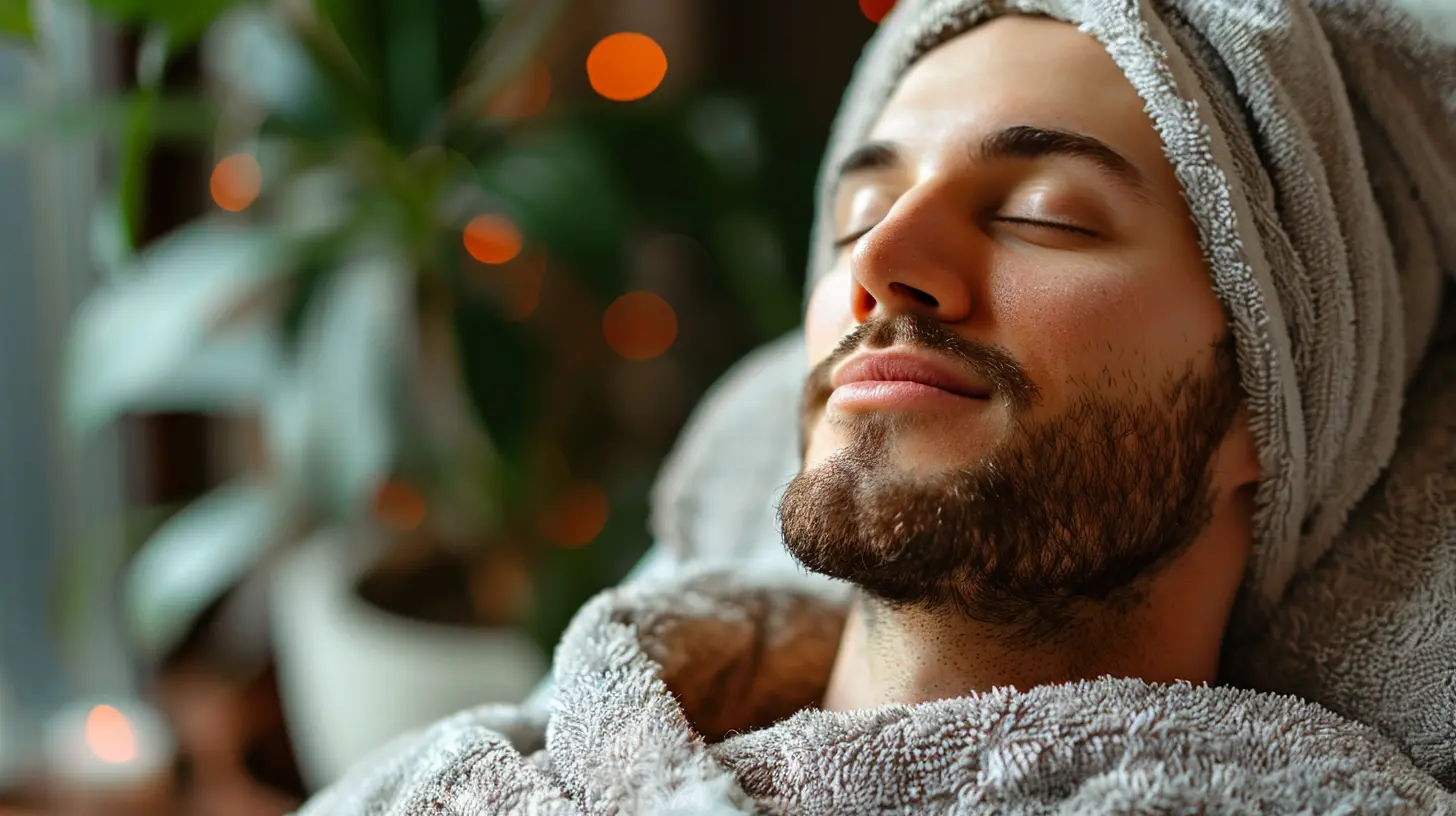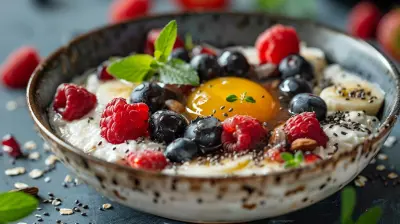Why Self-Care Is Key to Healthy Aging
3 August 2025
Aging is inevitable, but how we age? That part’s largely up to us. And no, it’s not all about genetics or fancy wrinkle creams. The real game-changer? Self-care. Yep, that buzzword we hear all the time isn't just about bubble baths and candles. It's about taking intentional steps every day to take care of your mind, body, and soul—especially as the years go by.
In this guide, we’ll dive into why self-care isn’t just a luxury—it’s a necessity for healthy aging. We'll walk through the physical, emotional, and mental benefits, and give you practical, easy-to-follow tips to keep feeling good no matter your age.

What Is Self-Care Anyway?
Let’s clear the air real quick—self-care isn’t selfish. It’s not some over-the-top luxury reserved for when you've got spare time (who has that, really?). Self-care is the habit of checking in with yourself and doing what you need to feel your best—physically, emotionally, and mentally.Think of it like putting on your oxygen mask before helping others. If you’re worn out or running on empty, how can you really show up for the people you love? Self-care helps you stay energized, focused, and, quite frankly, happy.

Aging Gracefully: It’s More Than Skin Deep
A lot of people think about aging in terms of physical appearance—wrinkles, gray hair, saggy skin. But real healthy aging digs deeper. It’s about maintaining your independence, staying mentally sharp, keeping your body moving, and feeling emotionally balanced.Physical Health: Your Body’s Not a Machine—It’s a Garden
Your body isn’t a machine that just stops working one day; it’s more like a garden. It needs regular watering (hydration), sunlight (Vitamin D), and some weeding (detoxing bad habits). Self-care helps you nurture this “garden” daily.Here’s how:
- Regular movement: Whether it’s walking, yoga, swimming, or dancing in your kitchen—staying active keeps your blood pumping and your joints moving.
- Quality sleep: Your body repairs itself while you sleep. Without rest, your immune system weakens, your mind gets foggy, and you start to feel... blah.
- Balanced nutrition: Think of food as fuel. Lean proteins, whole grains, fruits, and veggies help reduce inflammation and boost energy levels.
Mental Health: Keep Your Mind Sharp and Your Spirits Brighter
We spend so much time worrying about physical health that we sometimes forget about what’s going on upstairs. As we age, cognitive health becomes just as crucial. Simple self-care practices can help keep your brain active and strong.Try this:
- Read often: Keep your mind engaged with books, puzzles, or even learning a new hobby.
- Connect with others: Loneliness is real, and it can seriously affect your mental well-being. Schedule coffee with a friend or join a community group.
- Stay curious: Ask questions, travel (even nearby), and never stop learning.
Emotional Wellness: A Vital Piece of the Puzzle
Let’s face it—life gets heavy sometimes. Over the years, we go through a lot: losses, transitions, even identity shifts. Emotional self-care helps you process all that stuff and come out stronger.Here’s how you can stay emotionally grounded:
- Journaling: It helps you sort through your thoughts and see patterns in your emotions.
- Therapy or counseling: Talking to someone isn’t weak. It’s one of the smartest forms of self-care out there.
- Saying ‘no’: Boundaries are self-care too. Don’t overextend yourself out of guilt or pressure.

Self-Care Myths: Time to Bust a Few
Let’s put some myths to bed that may be holding you back.Myth 1: Self-Care is Time-Consuming
Not at all. Even 10 minutes a day makes a difference. A quick walk, a few deep breaths, a mindful cup of tea—it all adds up.Myth 2: It's Expensive
You don’t need spa days or premium supplements to practice self-care. A warm bath, homemade meals, or simply unplugging from tech for a while is free and effective.Myth 3: It’s Selfish
This one’s the biggest lie of them all. Taking care of yourself makes you a better partner, parent, friend, and human. You can’t pour from an empty cup, remember?
Holistic Self-Care Strategies for Healthy Aging
Now that we’ve cleared up the importance and misconceptions, let’s break down some practical self-care strategies that can truly support healthy aging. These aren’t one-size-fits-all, so feel free to tweak them to fit your lifestyle.1. Move Your Body Every Day
You don’t have to hit the gym for an hour. A 30-minute walk or gentle stretching can do wonders. Regular movement reduces your risk of heart disease, boosts mood, and helps maintain a healthy weight.And bonus—exercise releases endorphins. That's your brain’s happy juice.
2. Prioritize Nutrition, Not Dieting
Forget restrictive diets. Instead, focus on eating whole foods that nourish your body. Think colorful plates, lots of leafy greens, omega-3s from fish or chia seeds, and plenty of water.You’re not trying to look 25 again—you’re fueling your body for energy and longevity.
3. Sleep Like It Matters (Because It Does)
Stop glorifying hustle and start glorifying rest. Aim for 7–9 hours of quality sleep. Set a bedtime routine, keep screens off an hour before sleeping, and make your bedroom your sanctuary.4. Stay Socially Connected
Loneliness is linked with increased risk of dementia and depression. Keep in touch with family, friends, neighbors, or even make new connections through volunteering or clubs.Don’t isolate—your people are your lifeline.
5. Make Time for Joy
Laugh. Play games. Dance silly around the living room. Listen to old records. Joy is youth in disguise.Doing things that light you up isn’t a reward—it’s fuel for the journey.
6. Practice Mindfulness or Meditation
Even 5 minutes of mindfulness can center your thoughts and reduce stress. It keeps your mind engaged and anchored. Try deep breathing exercises, guided meditations, or simply paying attention to your breath.7. Routine Check-Ups & Preventative Care
Self-care also means being proactive about your health. Book those doctor visits. Get your blood pressure checked. Don’t ignore that nagging ache in your knee.Catching issues early helps avoid bigger problems down the road.
Aging Is a Privilege—Treat It That Way
Let’s not forget—getting older is a gift many don’t get. Every gray hair and laugh line tells a story. With the right care, your later years can be some of your best. Self-care helps you write that story with health, joy, and meaning.You don’t have to wait for a wake-up call to start caring for yourself. Start small, be consistent, and remember this isn’t about perfection. It’s about progress—and that’s always worth the effort.
Final Thoughts
Aging well doesn’t mean staying young. It means feeling vibrant, capable, and happy as each year passes. And self-care? That’s your secret weapon. It’s not about doing everything perfectly—it’s about consistently showing up for yourself in small but meaningful ways.So the next time someone says "You’re glowing!" you can smile and say, “Thanks, I’ve been taking care of me.”
Now that, my friend, is aging gracefully.
all images in this post were generated using AI tools
Category:
Anti AgingAuthor:

Laura Hudson
Discussion
rate this article
1 comments
Vireo Wheeler
This article beautifully highlights the critical role of self-care in promoting healthy aging. Prioritizing our well-being through simple practices can significantly enhance our quality of life as we age. Thank you!
August 21, 2025 at 3:54 AM

Laura Hudson
Thank you for your kind words! I'm glad the article resonated with you. Prioritizing self-care truly makes a difference in healthy aging!


